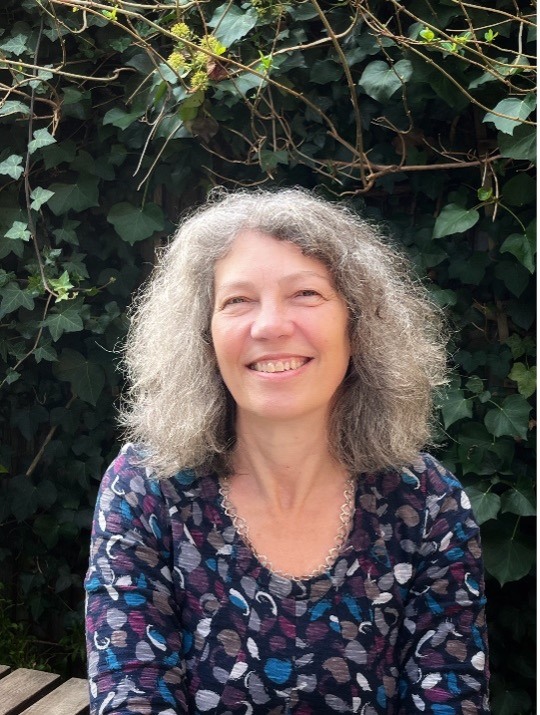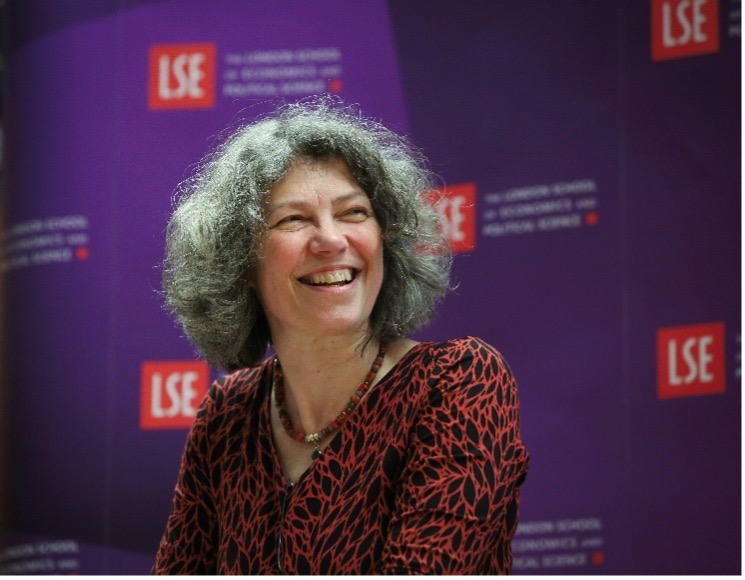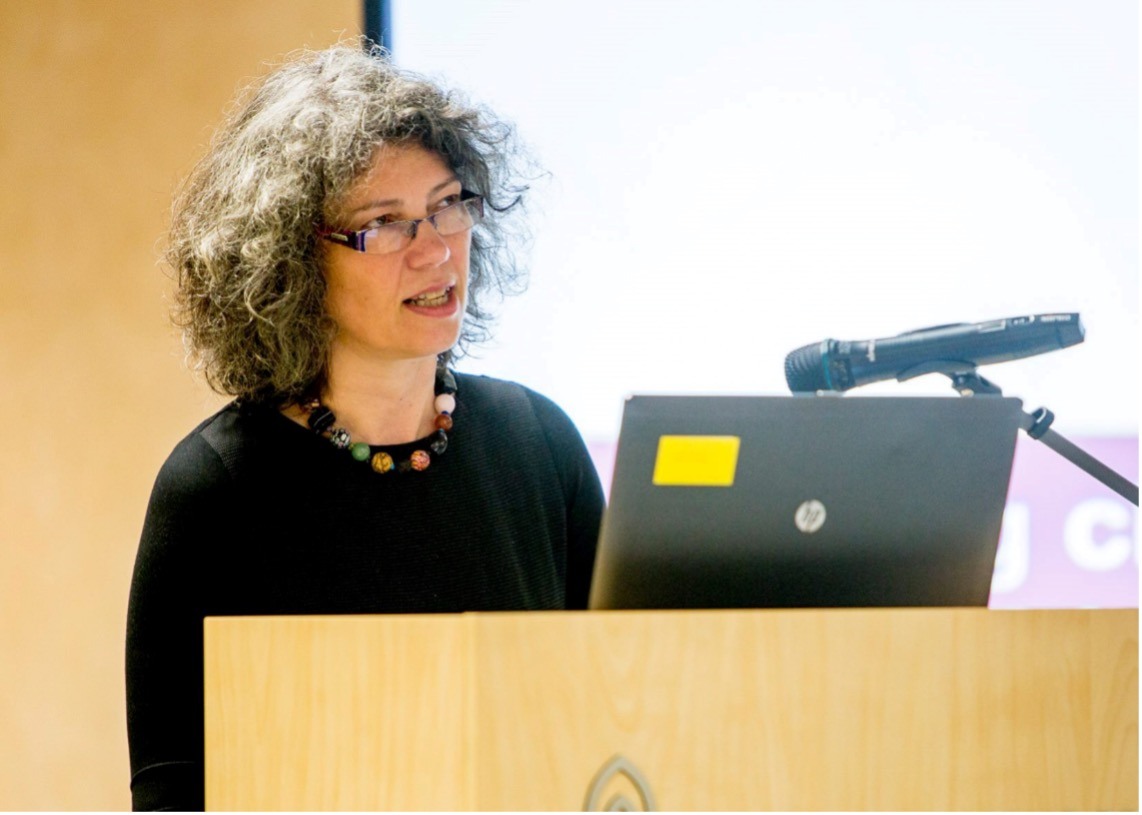Profile

Sonia Livingstone
Birth:
1960
Training Location(s):
PhD, University of Oxford (1987)
BSc, University College London (1982)
Primary Affiliation(s):
London School of Economics and Political Science (1990-present)
International Communication Association (2008-2023)
Psychology’s Feminist Voices Oral History Interview:
- Read Full Interview Transcript
- POWES Interview with Sonia Livingstone
- POWES Interview Excerpt with Sonia Livingstone: The Scientific Turn Taken by Psychology
- POWES Interview Excerpt with Sonia Livingstone: Impact of Feminists in Psychology
- POWES Interview Excerpt with Sonia Livingstone: Advice for Future Feminists
Other Media:
Professional webpage: Sonia Livingstone at the London School of Economics
Career Focus:
Mediation of everyday life; digital technologies; media literacy; online risk and opportunity; child internet safety; children’s rights in the digital environment.
Biography
Sonia Livingstone was born in Adelaide, Australia, in 1960 – “my parents went out there for jobs, and found it too hot, and came back [to the UK]”. At age 17 she had no idea what she wanted to study; she was interested in both science and arts. She gravitated towards psychology because it appeared to her to be a way of doing both, and she sees that as a pointer to her later work: she feels she has “always tried to bridge divergent, sometimes even opposed, positions”.
As a teen, Sonia was a “second wave” feminist: she went on marches, read Spare Rib and books like Our Bodies Ourselves, and engaged in lively discussions about feminism. However, Sonia felt that little of this was reflected in her Psychology undergraduate course at University College London (UCL), which focused on differentiating people as “normal” versus “abnormal”, with little questioning of the fact that “normal” usually meant boys or men.
After graduating from UCL in 1982 with first class honours in Psychology, Sonia hoped to do a doctorate on gender and people’s understanding of genetics, mainly as a response to the essentialist accounts of gender that some considered a counter to feminism. However, Psychology’s disciplinary turn towards being a “proper science” impacted her career trajectory, resulting in a shift to media studies for her doctorate. She “felt a kind of despair that psychology was turning its back on so many things that were happening in the world”, and found it “hard to embrace a group if you feel that you’re not welcome in it”.
Sonia’s doctorate from the University of Oxford, co-funded by a media regulator and awarded in 1987, was about soap operas. It involved listening to audiences, many of them women, about what they found special about these programmes. She deliberately used a feminist lens here, although she did not invoke explicitly feminist theory—she believes that this applies to most of her work.
After a brief period as a fellow in Sociology at Oxford, a lecturer in Sociology at Brunel and Social Psychology at Kent, Sonia moved to a social psychology job at the London School of Economics and Political Science (LSE), where she has remained ever since. She found LSE agreeable because of its focus on the social aspects of every issue, and because being a relatively small institution meant that it was easier to work with colleagues in other disciplines: “All my career I’ve built cross-disciplinary networks, welcomed multiple currents”.
An early project there was helping establish the Gender Institute (GI), where initial hostility to the idea had to be negotiated and neutralised. Success here—the GI is now a respected part of LSE—encouraged Sonia to build a network of colleagues with an interest in media studies, and after some further struggles she was able to establish the Department of Media and Communications, where she is currently Professor of Social Psychology.
In her years at LSE, Sonia has been a hugely prolific and influential writer on media issues. She has authored or edited more than 20 books, with a particular focus on the risks and opportunities of the digital environment for children and young people. She has given advice on internet safety for children and their rights in the current digital environment to, among others, the UK Government, European Commission, European Parliament, United Nations Committee on the Rights of the Child, Organisation for Economic Co-operation and Development (OECD), International Telecommunication Union (ITU) and United Nations Children's Fund (UNICEF), and held visiting professor posts at the Universities of Bergen, Copenhagen, Harvard, Illinois, Milan, Oslo, Paris II, and Stockholm. Her contributions were recognised in 2014 by the award of an Officer of the Order of the British Empire “for services to children and child Internet safety” and by her election in 2018 as a Fellow of the British Academy.
The achievement of which Sonia is proudest is her work with the UN Committee on the Rights of the Child to produce a formal statement (called a “general comment”) on Children’s Rights in the Relation to the Digital Environment, which was published in 2021: “probably the most influential 10,000 words I will ever write”. This reflects her decision to encompass not only research but also advocacy and policy-making: “It became frustrating to feel like I was contributing to an understanding of people’s lives, and nothing followed, no-one took any notice – this was an understanding that sat on the page”. She is undertaking further work on this under the auspices of the Digital Futures Commission with the 5Rights Foundation.
Her most recent book, Parenting for a Digital Future (2020), examines parental anxieties about technology, and asks whether we can intervene in helpful ways based on research. Her next book, Is the Internet Good for Children?, will explore how, despite our feeling that society is changing faster than ever before, family life is still recognisably similar to what it was 10 or even 40 years ago.
Although she has not been active in the Psychology of Women and Equalities Section (POWES) of the British Psychological Society (BPS) in recent years, Sonia appreciated it as advocating for inclusivity within the BPS. She points to the significant impact of POWES: gender debates no longer embody naive essentialist or reductionist approaches, and there is now acceptance of discursive and narrative qualitative methods: “These transformations in the field all have multiple causes, but I would say in this country it’s been spearheaded by the POWES group”.
Her advice to feminist psychologists is to “go for it, enjoy it, but watch your back”: try to find mentors and identify support structures, but also push for what you want to see happen rather than waiting for someone to grant it to you.
By Lois Donnelly (2022)
To cite this article, see Credits
Selected Works
Livingstone, S., & Pothong, K. (2022). Imaginative play in digital environments: designing social and creative opportunities for identity formation. Information, Communication & Society, 25(4), 485-501.
Vissenberg, J., d'Haenens, L., & Livingstone, S. (2022). Digital literacy and online resilience as facilitators of young people’s well-being? A systematic review. European Psychologist, 27(2), 76–85.
Livingstone, S. and Blum-Ross, A. (2020). Parenting for a digital future: how parents’ hopes and fears about technology shape children’s lives. Oxford University Press.
Livingstone, S. and Sefton-Green, J. (2016) The class: living and learning in the digital age. NYU Press.
Livingstone, S., Haddon, L. and Görzig, A., eds. (2012) Children, risk and safety on the internet: research and policy challenges in comparative perspective. Policy Press.
Ringrose, J., Harvey, L., Gill, R., & Livingstone, S. (2013). Teen girls, sexual double standards and ‘sexting’: Gendered value in digital image exchange. Feminist Theory, 14(3), 305-323.
Livingstone, S., Haddon, L., Görzig, A., & Ólafsson, K. (2011). Risks and safety on the internet: the perspective of European children: full findings and policy implications from the EU Kids Online survey of 9-16 year olds and their parents in 25 countries. EU Kids Online, Deliverable D4. EU Kids Online Network, London, UK.
Livingstone, S. (2009) Children and the internet: great expectations, challenging realities. Polity Press.
Livingstone, S. (2008). Taking risky opportunities in youthful content creation: teenagers' use of social networking sites for intimacy, privacy and self-expression. New Media & Society, 10(3), 393-411.
Photo Gallery



Sonia Livingstone
Birth:
1960
Training Location(s):
PhD, University of Oxford (1987)
BSc, University College London (1982)
Primary Affiliation(s):
London School of Economics and Political Science (1990-present)
International Communication Association (2008-2023)
Psychology’s Feminist Voices Oral History Interview:
- Read Full Interview Transcript
- POWES Interview with Sonia Livingstone
- POWES Interview Excerpt with Sonia Livingstone: The Scientific Turn Taken by Psychology
- POWES Interview Excerpt with Sonia Livingstone: Impact of Feminists in Psychology
- POWES Interview Excerpt with Sonia Livingstone: Advice for Future Feminists
Other Media:
Professional webpage: Sonia Livingstone at the London School of Economics
Career Focus:
Mediation of everyday life; digital technologies; media literacy; online risk and opportunity; child internet safety; children’s rights in the digital environment.
Biography
Sonia Livingstone was born in Adelaide, Australia, in 1960 – “my parents went out there for jobs, and found it too hot, and came back [to the UK]”. At age 17 she had no idea what she wanted to study; she was interested in both science and arts. She gravitated towards psychology because it appeared to her to be a way of doing both, and she sees that as a pointer to her later work: she feels she has “always tried to bridge divergent, sometimes even opposed, positions”.
As a teen, Sonia was a “second wave” feminist: she went on marches, read Spare Rib and books like Our Bodies Ourselves, and engaged in lively discussions about feminism. However, Sonia felt that little of this was reflected in her Psychology undergraduate course at University College London (UCL), which focused on differentiating people as “normal” versus “abnormal”, with little questioning of the fact that “normal” usually meant boys or men.
After graduating from UCL in 1982 with first class honours in Psychology, Sonia hoped to do a doctorate on gender and people’s understanding of genetics, mainly as a response to the essentialist accounts of gender that some considered a counter to feminism. However, Psychology’s disciplinary turn towards being a “proper science” impacted her career trajectory, resulting in a shift to media studies for her doctorate. She “felt a kind of despair that psychology was turning its back on so many things that were happening in the world”, and found it “hard to embrace a group if you feel that you’re not welcome in it”.
Sonia’s doctorate from the University of Oxford, co-funded by a media regulator and awarded in 1987, was about soap operas. It involved listening to audiences, many of them women, about what they found special about these programmes. She deliberately used a feminist lens here, although she did not invoke explicitly feminist theory—she believes that this applies to most of her work.
After a brief period as a fellow in Sociology at Oxford, a lecturer in Sociology at Brunel and Social Psychology at Kent, Sonia moved to a social psychology job at the London School of Economics and Political Science (LSE), where she has remained ever since. She found LSE agreeable because of its focus on the social aspects of every issue, and because being a relatively small institution meant that it was easier to work with colleagues in other disciplines: “All my career I’ve built cross-disciplinary networks, welcomed multiple currents”.
An early project there was helping establish the Gender Institute (GI), where initial hostility to the idea had to be negotiated and neutralised. Success here—the GI is now a respected part of LSE—encouraged Sonia to build a network of colleagues with an interest in media studies, and after some further struggles she was able to establish the Department of Media and Communications, where she is currently Professor of Social Psychology.
In her years at LSE, Sonia has been a hugely prolific and influential writer on media issues. She has authored or edited more than 20 books, with a particular focus on the risks and opportunities of the digital environment for children and young people. She has given advice on internet safety for children and their rights in the current digital environment to, among others, the UK Government, European Commission, European Parliament, United Nations Committee on the Rights of the Child, Organisation for Economic Co-operation and Development (OECD), International Telecommunication Union (ITU) and United Nations Children's Fund (UNICEF), and held visiting professor posts at the Universities of Bergen, Copenhagen, Harvard, Illinois, Milan, Oslo, Paris II, and Stockholm. Her contributions were recognised in 2014 by the award of an Officer of the Order of the British Empire “for services to children and child Internet safety” and by her election in 2018 as a Fellow of the British Academy.
The achievement of which Sonia is proudest is her work with the UN Committee on the Rights of the Child to produce a formal statement (called a “general comment”) on Children’s Rights in the Relation to the Digital Environment, which was published in 2021: “probably the most influential 10,000 words I will ever write”. This reflects her decision to encompass not only research but also advocacy and policy-making: “It became frustrating to feel like I was contributing to an understanding of people’s lives, and nothing followed, no-one took any notice – this was an understanding that sat on the page”. She is undertaking further work on this under the auspices of the Digital Futures Commission with the 5Rights Foundation.
Her most recent book, Parenting for a Digital Future (2020), examines parental anxieties about technology, and asks whether we can intervene in helpful ways based on research. Her next book, Is the Internet Good for Children?, will explore how, despite our feeling that society is changing faster than ever before, family life is still recognisably similar to what it was 10 or even 40 years ago.
Although she has not been active in the Psychology of Women and Equalities Section (POWES) of the British Psychological Society (BPS) in recent years, Sonia appreciated it as advocating for inclusivity within the BPS. She points to the significant impact of POWES: gender debates no longer embody naive essentialist or reductionist approaches, and there is now acceptance of discursive and narrative qualitative methods: “These transformations in the field all have multiple causes, but I would say in this country it’s been spearheaded by the POWES group”.
Her advice to feminist psychologists is to “go for it, enjoy it, but watch your back”: try to find mentors and identify support structures, but also push for what you want to see happen rather than waiting for someone to grant it to you.
By Lois Donnelly (2022)
To cite this article, see Credits
Selected Works
Livingstone, S., & Pothong, K. (2022). Imaginative play in digital environments: designing social and creative opportunities for identity formation. Information, Communication & Society, 25(4), 485-501.
Vissenberg, J., d'Haenens, L., & Livingstone, S. (2022). Digital literacy and online resilience as facilitators of young people’s well-being? A systematic review. European Psychologist, 27(2), 76–85.
Livingstone, S. and Blum-Ross, A. (2020). Parenting for a digital future: how parents’ hopes and fears about technology shape children’s lives. Oxford University Press.
Livingstone, S. and Sefton-Green, J. (2016) The class: living and learning in the digital age. NYU Press.
Livingstone, S., Haddon, L. and Görzig, A., eds. (2012) Children, risk and safety on the internet: research and policy challenges in comparative perspective. Policy Press.
Ringrose, J., Harvey, L., Gill, R., & Livingstone, S. (2013). Teen girls, sexual double standards and ‘sexting’: Gendered value in digital image exchange. Feminist Theory, 14(3), 305-323.
Livingstone, S., Haddon, L., Görzig, A., & Ólafsson, K. (2011). Risks and safety on the internet: the perspective of European children: full findings and policy implications from the EU Kids Online survey of 9-16 year olds and their parents in 25 countries. EU Kids Online, Deliverable D4. EU Kids Online Network, London, UK.
Livingstone, S. (2009) Children and the internet: great expectations, challenging realities. Polity Press.
Livingstone, S. (2008). Taking risky opportunities in youthful content creation: teenagers' use of social networking sites for intimacy, privacy and self-expression. New Media & Society, 10(3), 393-411.


